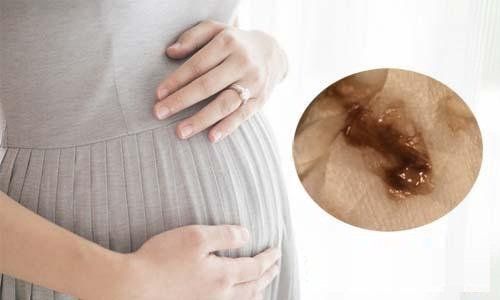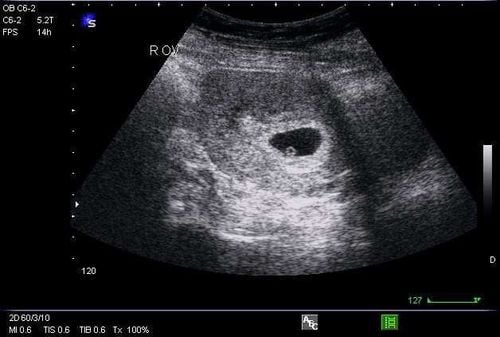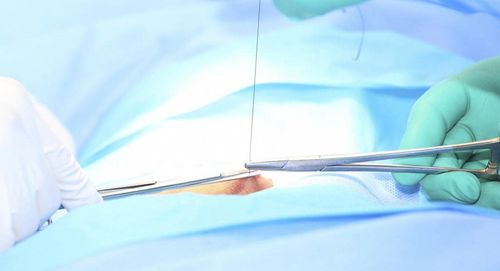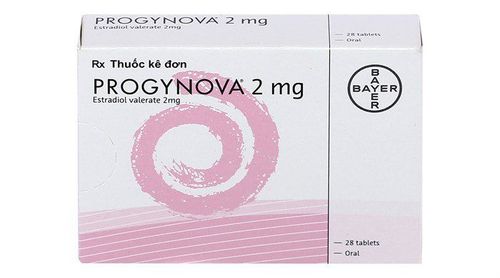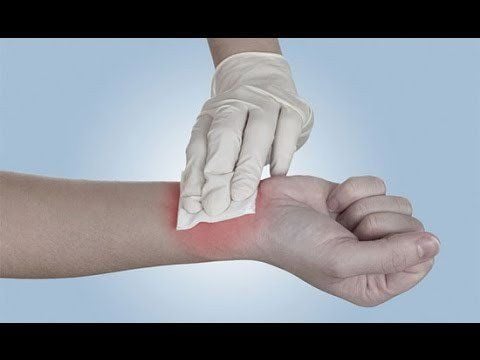During pregnancy, it is crucial to maintain a scientific lifestyle and follow a suitable diet. Additionally, vaccinating both pregnant women and fetuses is very important, especially with tetanus shots.
1. What is tetanus?
Tetanus, commonly referred to as lockjaw, is a disease characterized by convulsions and muscle stiffness caused by the exotoxin produced by the tetanus bacillus Clostridium tetani. These bacteria are found in various environments and can infect healthy individuals through open wounds. Tetanus bacteria are particularly resilient, and boiling or prolonged sterilization methods are often insufficient to eliminate them.
The symptoms of the disease are muscle spasms accompanied by pain, first in the muscle of mastication, facial muscles, and neck muscles, then spreading to the body muscles. Tetanus is a serious disease with a high mortality rate, particularly affecting pregnant women and newborns.
2. Why should pregnant women be vaccinated against tetanus?
In pregnant women, tetanus bacteria can enter the genital tract during childbirth and cause uterine tetanus. In newborns, tetanus bacteria can easily enter the cutting umbilical cord and tying site, leading to neonatal tetanus infection. Once the bacteria attack the body, they will produce a toxin called tetanospasmin that enters the blood. This toxin causes respiratory failure, and autonomic nervous system disorders and leads to death if not detected and treated promptly.
Newborns are susceptible to tetanus if the mother hasn’t been vaccinated against the disease during pregnancy. Therefore, at childbearing age, women should be vaccinated against tetanus to fully protect the mother and baby, preparing for the time of labor and delivery.
According to doctors, tetanus vaccination helps mothers create antibodies in advance, avoiding infection and disease during labor. In addition, vaccination also supports children, minimizing the risk of tetanus infection after birth. Tetanus vaccines for pregnant women have been tested to be safe for mothers and babies, and do not affect the fetus. Therefore, pregnant women should be vaccinated according to the instructions of medical staff.

3. Time of tetanus vaccination for pregnant women
Pregnant women should follow the vaccination schedule of the medical center based on their pregnancy stage. Regarding vaccination time, Circular 38/2017/TT-BYT of the Ministry of Health stipulates:
For those who have not been vaccinated, have not received 3 doses of vaccine, or have an unknown vaccination history, they should be vaccinated against tetanus according to the following schedule:
- 1st time: Vaccinate early when pregnant for the first time;
- 2nd time: Vaccinate at least 1 month after the first time;
- 3rd time: Vaccinate at least 6 months after the 2nd time or during the next pregnancy;
- 4th time: Vaccinate at least 1 year after the 3rd time or during the next pregnancy;
- 5th time: booster shot at least 1 year after the 4th time or in the next pregnancy.
For those who have received 3 doses of tetanus vaccine containing the basic dose, the vaccination schedule should be as follows:
- 1st time: Inject early when pregnant for the first time;
- 2nd time: Inject at least 1 month after the 1st time;
- 3rd time: Inject at least 1 year after the 2nd time.
For those who have received 3 doses of tetanus vaccine containing the basic dose and have received 1 booster dose, the schedule should be as follows:
- 1st time: Inject early when pregnant for the first time;
- 2nd time: Inject at least 1 year after the 1st time.
For women who are pregnant for the first time, have never been vaccinated against tetanus, have not received all 3 basic doses, or have an unknown vaccination history, they will receive 2 doses at the following times:
- Dose 1: Inject when the pregnancy is over 20 weeks;
- Dose 2: Inject at least 30 days after dose 1 or at least 30 days before giving birth.
Women who have received all 4 tetanus doses and are pregnant for the second time with the last dose within 10 years do not need to receive a tetanus booster shot. If the vaccination time is after 10 years, they should receive 2 tetanus booster shots. If in the previous pregnancy, the mother received 2 tetanus vaccine doses within 10 years, she should receive 1 dose of vaccine from the 20th week of pregnancy onwards.
4. Notes when vaccinating pregnant women

- Pregnant women should not obtain tetanus vaccinations independently; instead, they must adhere to the vaccination schedule based on their stage of pregnancy or the guidelines provided by their medical center.
- Do not worry too much if you feel pain at the injection site, fever, headache, allergy,... after injection because this is when the tetanus vaccine begins to form antibodies to protect the body from the risk of infection. These symptoms are usually not serious and will quickly pass. The swelling and pain will go away on their own, without the need to use medicine or apply a compress to the injection site;
- 2 weeks after vaccination, the body will create tetanus antibodies. Therefore, for the vaccine to be highly effective in preventing the disease, women should not drink alcohol after the injection and strictly follow the doctor's instructions;
- If a pregnant woman who has had a second tetanus injection has symptoms such as cold hands and feet, pale skin, diarrhea, rapid heartbeat, and difficulty breathing,... she needs to go to the hospital immediately for timely treatment and intervention to avoid anaphylactic shock after the injection;
- You should choose a reputable medical facility certified by the Ministry of Health for vaccination when getting a tetanus vaccine to ensure the safety of the pregnant mother and fetus.
Tetanus is one of the most worrying health problems for pregnant women and newborns. Therefore, tetanus vaccination for pregnant women is extremely important to ensure maximum prevention of the risk of unpredictable complications during labor. When getting tetanus vaccination, pregnant women need to strictly follow the instructions of medical staff regarding the dose and time of vaccination.
Please dial HOTLINE for more information or register for an appointment HERE. Download MyVinmec app to make appointments faster and to manage your bookings easily.




